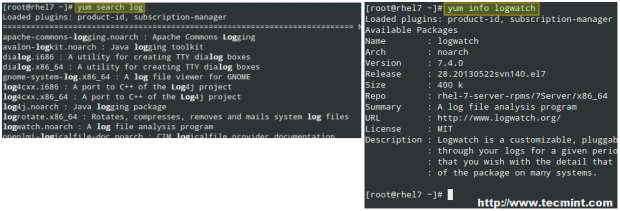



If you are a newbie to Linux administration and if would have installed any software using rpm installation, then you would know the pain of installing all dependencies before you could install the original one. But Linux gives you that power which other OS wouldn’t give ie., YUM which will automatically find and install all required dependencies for the software. To install a package, do ‘yum install packagename’. System admnistrators can configure YUMto use third party repositories to install packages automatically by resolving their dependency issues. Here we would see those 15 most frequently used YUM commands with examples. YUM allows system administrators to easily Install, Update, Search or Uninstall software packages on a system. YUM stands for Yellowdog Updater Modified, is an open source command line package management for RPM-based distributions of Linux like RedHat, CentOS, Fedora etc. : Failed to contact the endpoint at for discovery.: Code 400, message Client must support ‘binary’ or ‘base64’ protocol.: Yum install python-pip | No package python-pip available.How to manually install higher version of PIP for Python v2.7.Too many connections for neutron-db-manage.How to configure Open vSwitch bridge for OpenStack.How to automatically extend windows virtual disk size.To list recent updated/added packages to the repository database using YUM How to install a package from a non configured repository using yum –enablerepo Search the list with specific package name How to find a file belonging to which package using YUM. How to find out which are the packages available for upgradation using YUM. How to list all the installed packages on your system. How to list all the packages available in the YUM database How to search for a software package using YUM How to remove/Uninstall a software package using YUM How to upgrade/update a software using YUM How to get a package information using YUM You should be able to make a combined list of all of them using list concatenation and two yum tasks: - yum: We can also confirm this by Ansible code source, where the list value is considered in an if. The list parameter is a string, not a list, as pointed by the documentation, so, if you pass something else than the reserved words - installed, updates, available or repos - it will be considered as a packaged and will probably return your nothing.


 0 kommentar(er)
0 kommentar(er)
